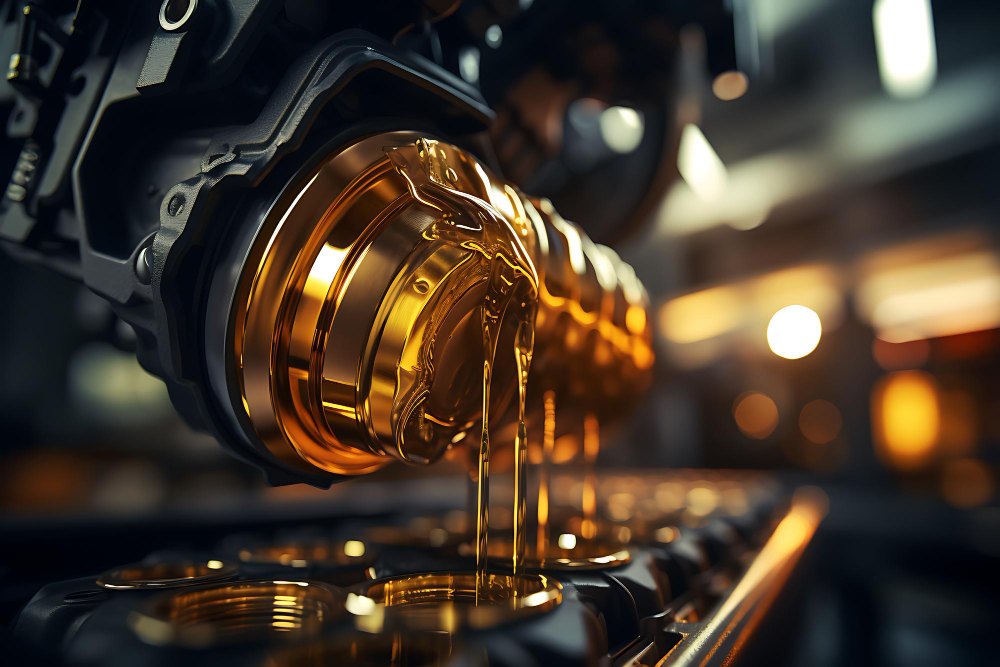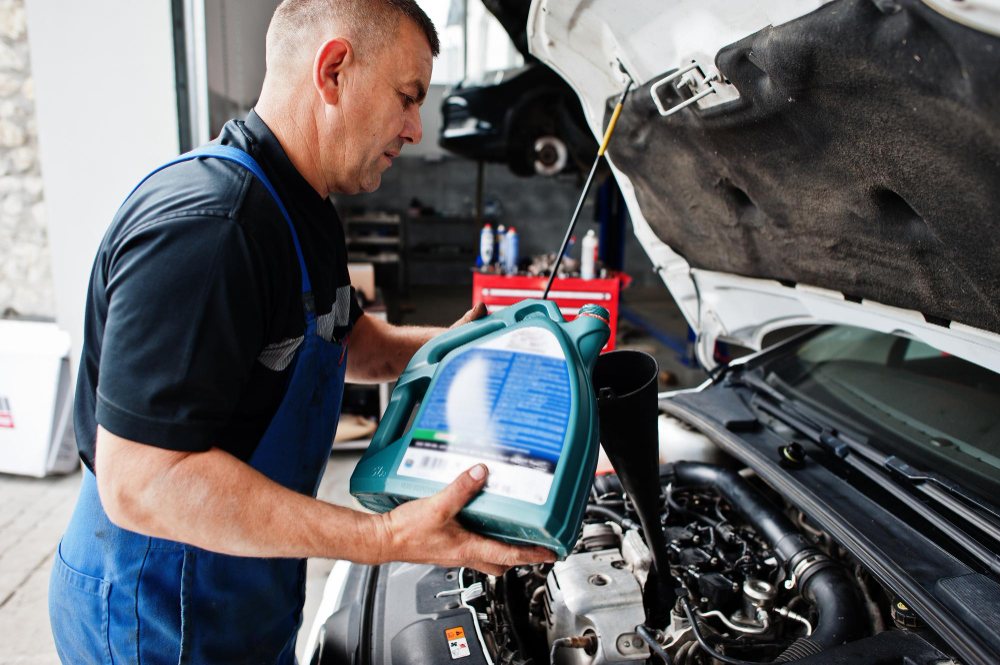When it comes to engine cooling, the picture that springs to the minds of many people is antifreeze circulating through the car’s radiator.
However, one of the hidden gems in managing the engine temperature is not the coolant but the engine oil.
Yes, the same oil that reduces friction between parts and prevents the metal to metal contact helps in the cooling of the engine.
Indeed, if oil is not used at this capacity, engines will heat up much more and have a shorter lifespan; some might even seize up. Checking engine oil at our trusted auto repair shop helps maintain proper engine temperature and extends the lifespan of the vehicle.
Understanding Engine Heat
It is important to first understand the source of heat in the engines and how the heat is controlled before getting into the details of how oil helps in cooling.
Working engines function with the help of fuel that is burnt in order to produce energy.
This is not an efficient process since a large proportion of the generated energy is in the form of heat that is dissipated into the environment.
The internal temperature can go as high as 2,500 degrees Fahrenheit (about 1,370 degrees Celsius) or even higher depending on the type of fuel.
If not controlled and dissipated effectively, it can cause considerable harm to the engine parts, which may deform, crack, or seize.
In the past, the radiator, water pump, and coolant were the parts that controlled this heat considerably.
It circulates through the engine block and heads, takes heat from the engine, and carries it to the radiator to expel it to the atmosphere.
However, there are sections of the engine that the coolant cannot penetrate; this is when engine oil comes in. To keep your engine working properly, you should stay on top with oil and filter service.
Engine oil: The Two Faces of the Same Coin:
Engine oil serves two primary functions: lubrication and cooling. These are interrelated roles because proper lubrication will also enhance the cooling that is required in most applications. Now let’s see how oil meets each of these functions:
1. Lubrication
In its simplest form, engine oil is meant to act as a lubricant to minimize contact between rubbing surfaces.
It separates two metal surfaces by forming a very slim layer between them and not only does this minimize wear and tear but also minimizes heat produced by friction.
Again, less friction is less heat, and this is the first way oil aids in maintaining the engine temperatures.

2. Cooling
Oil’s cooling role is much more straightforward and simple, although not as well-known as the other functions of oil.
When the oil is in the engine it lubricates moving parts and at the same time cools parts such as the crank shaft, the pistons, the cam shaft and the bearings.
These parts are exposed to high temperatures resulting from combustion and friction, and while coolant cannot penetrate many of these areas, oil can.
The metal surface of the oil transfers the heat to the oil and proceeds in its circulation to the oil pan or cooler.
In high-performance engines, this heat is usually removed by using oil coolers before the oil is circulated again.
This process is very important because if the oil did not take and dissipate this heat to the cooler parts of the engine, these components would get very hot and fail which would result in rapid wear of the components.
How Engine Cooling Functions with the Circulation of Oil
To understand the mechanics behind oil’s role in engine cooling, let’s explore the oil circulation process:
Oil Pickup and Pumping:
The first process starts with the oil pan that contains the oil. Oil is pulled through the oil pan by the oil pump through a pickup tube and then forced through oil galleries, which are channels within the engine block and head.
Heat Absorption:
The oil circulates through the galleries where it performs functions such as lubrication and cooling of essential parts of the engine.
For instance, it supplies oil to the crankshaft bearings that move around per minute, and this is accompanied by a lot of friction and heat production.
It also cools the pistons and cylinder walls, which form the chamber where combustion takes place.
Heat Transfer:
After absorbing heat, the oil returns to the oil pan. In high-performance or heavy-duty engines, an oil cooler is often placed in this circuit to cool the oil further before it is recirculated.
Cycle Continuation:
The oil continues this loop, constantly picking up heat and releasing it as it circulates, ensuring the engine stays within its optimal temperature range.
The Role of Oil Quality in Cooling
Not all oils are created equal, and the quality of the oil you use can influence the efficiency of the oils in cooling the engines. Here are some factors to consider:
1. Viscosity
Viscosity can be defined as the degree of oil thickness and the manner in which the oil will flow at a given temperature.
However, if the oil is thick, it may not circulate in the system as fast to draw and shed heat in the process.
On the other hand, it may be too thin (low viscosity) and this would mean that it cannot effectively lubricate the moving parts which would result in high friction and heat.
As with modern multi-grade oils, they are formulated to provide the right viscosity at both high and low temperatures, making them suitable for lubrication and heat control.
2. Additives
Some of the additives enhance the heat stability of the oil while others aid in spreading heat within the oil in case of high temperatures.
For instance, detergents help maintain the cleanliness of the engine parts, which would otherwise be covered in sludge that hampers heat dissipation.
3. Synthetic vs. Conventional Oils
Synthetics are designed to perform better in severe conditions than conventional oils, including enhanced heat dissipation abilities.
They do not undergo chemical decomposition, remain stable at high temperatures, do not form deposits, and do not change their viscosity.
This makes synthetic oils ideal for high-performance engines or any vehicle that is used in extreme conditions.
Keep Your Engine Cool with Proper Oil Care
Engine oil is not just a lubricant but a critical component in your vehicle’s cooling system.
By efficiently absorbing and dissipating heat, oil plays a vital role in preventing engine overheating, reducing wear and tear, and ultimately prolonging engine life.
For routine car maintenance and engine oil changes, it’s essential to ensure that your vehicle is in expert hands. To keep your engine running cool and smooth, contact Eric’s Car Care at 713-667-9293 for professional service and expert advice.

